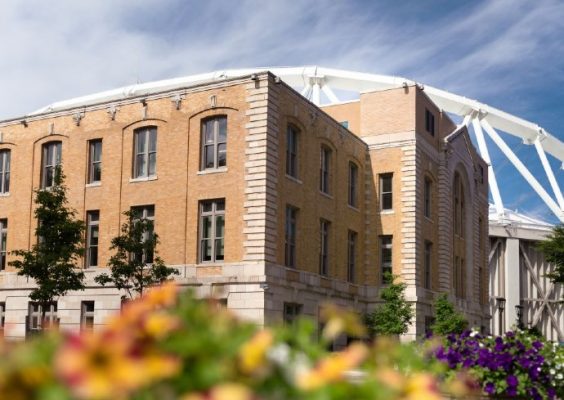
From arriving to a new college environment to life’s transitions, students may at times feel disconnected. “The same way we must put time, effort and understanding into academics, we must put time, effort and understanding into our connections with ourselves and others,” shares Susanne Rios, Barnes Center at The Arch group therapy coordinator and licensed marriage and family therapist.
When the feelings of loneliness and seeking connection are explored through a student-focused lens they encompass each of the Barnes Center at The Arch Dimensions of Wellness, with an emphasis on Emotional Wellness, Environmental Wellness and Social Wellness.
Not Alone in Feeling Lonely
Rios says, “we can be surrounded by people and still feel lonely. This is human.” Navigating social experiences, establishing new support systems, communities and routines, are just a few of the many reasons why it is not uncommon for college students to feel lonely from time to time.
However, it’s important to highlight that though it’s not uncommon to feel lonely and/or disconnected, it does not mean that these experiences are insignificant and for some more difficult to overcome.
Exploring One’s Loneliness and Connections
Similar to each unique student experience, the feelings of loneliness and seeking connection are not simply supported within a “one-size fits all” approach. “Loneliness manifests in a range of ways, including social withdrawal, anger, irritability, substance use disorders, addictions, sadness, depression and anxiety,” explains Rios.
Students and those seeking to support students are invited to further explore and ultimately identify possible sources of loneliness and from there establish actions that when executed may lead to long-term solutions. Diving in further, Rios shares, “When we feel lost, lonely and/or uncertain we can resort to looking outside of ourselves for someone else to take the brave action of inviting us out, starting a conversation with us or addressing a lifestyle change we can be responsible for doing ourselves.”
Through self-reflection, individuals are invited to explore the following examples that may be generating feelings of disconnect and loneliness and also work to identify those unique to their experiences:
- New routines
- Difficulty managing time
- Uncertainty of the future (e.g. major, career and more)
- Distance from family, supporters and home
- Not yet established campus friends/community
- Uncertainty of University support and resources
Building a Personal Toolkit to Reduce Loneliness and Build Connections
“True belonging and connection require that we get brave with our authenticity. It requires us to take down the barriers and façades of self-protection and allow ourselves to be seen,” says Rios. “Loneliness is a human experience. How we approach and manage the feelings of loneliness will determine the outcome.”
After identifying areas that may be resulting in the feelings of loneliness and disconnect, students are invited to take action. The following resources can help meet new people and build connections.
Supporting the Student Experience
Students and those seeking to support students are also invited to begin a personalized conversation with the following campus resources.
About the Supporting Student Wellness Series
Through a student-focused lens of integrated health and wellness, this series explores a variety of Barnes Center at The Arch resources and services. In the pursuit of enhancing the student experience, topics empower faculty, staff, students, families and supporters as catalysts of health and wellness within their daily interactions.
from "connection" - Google News https://ift.tt/lZCE93X
via IFTTT
Bagikan Berita Ini















0 Response to "Supporting Student Wellness Series: Loneliness and Connection - Syracuse University News"
Post a Comment